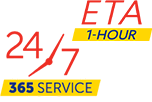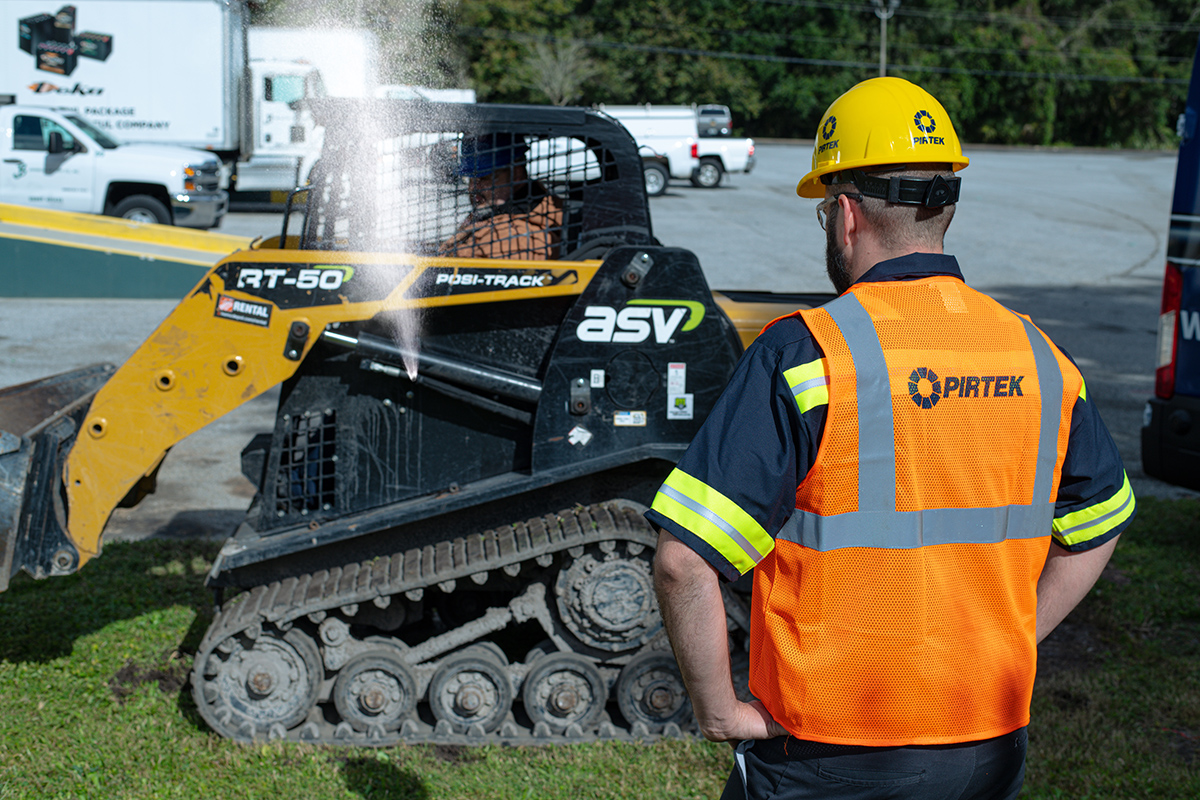When it comes to hydraulic systems, a single hose failure can quickly bring operations to a grinding halt. A neglected hose can burst without warning, releasing high-pressure hydraulic fluid that can injure operators, damage surrounding components, and contaminate the environment. Even minor leaks can cause serious problems over time, such as loss of hydraulic power, reduced efficiency, and costly fluid replacement. In industries where uptime is critical, such as construction, manufacturing, marine, and agriculture, these issues don’t just slow productivity; they can also trigger safety violations, missed deadlines, environmental cleanup costs, and expensive emergency repairs.
Hydraulic hoses work under extreme pressure, in high-heat environments, around abrasive surfaces, and sometimes in the presence of harsh chemicals. Small signs of wear can become catastrophic failures without regular inspection and preventative maintenance. At PIRTEK, we’ve seen equipment sidelined for days because of a single hose, when regular checks could have kept it running. By establishing a clear, consistent inspection routine, you can spot trouble early, schedule maintenance at convenient times, and avoid the costly downtime that comes with unplanned breakdowns.
A consistent inspection routine not only extends hose life but also ensures equipment operates at peak efficiency. Here’s what you need to know about hydraulic hose maintenance, what to inspect, how often, and why it matters.
Why Hydraulic Hose Maintenance Matters
Hydraulic hoses are the lifelines of your equipment, transferring pressurized fluid to power machinery. When they fail, the ripple effects can be significant:
- Lost productivity from halted operations
- Safety hazards from high-pressure leaks or whiplash from a broken hose
- Environmental risks from spilled hydraulic fluid
- Increased repair costs when secondary components are damaged
- Missed deadlines and penalties for project delays
Preventative maintenance addresses these risks head-on, allowing you to keep your machines and team operating safely and efficiently.
Key Hose Inspection Points
To protect your investment and reduce downtime, inspections should focus on these areas:
- Outer Cover Condition
Look for cracks, cuts, abrasions, blistering, or excessive wear. Damage here means the hose’s reinforcement layers are exposed and vulnerable. - Fittings and Connections
Check for corrosion, cracks, or looseness. Secure connections are critical for maintaining system pressure. - Leaks
Even a small drip is a warning sign that a hose or fitting is compromised and needs attention. - Bend Radius Compliance
Ensure hoses are routed without tight bends beyond their recommended bend radius—tight bends weaken hose integrity. - Hose Alignment
Misaligned hoses can experience excessive strain during equipment operation. - Signs of Heat or Chemical Damage
Discoloration, brittleness, or soft spots can indicate exposure to damaging temperatures or incompatible fluids. - Hose Tag Data
PIRTEK’s hose tagging system records installation date, specifications, and service history, invaluable data for determining replacement intervals.
When to Inspect
- Daily/Pre-Operation Checks: Quick visual scan for leaks, cracks, or kinks before using equipment.
- Weekly Checks: Examine fittings, bends, and mounting points more thoroughly.
- Monthly/Quarterly: Review hose tag records, monitor system performance, and inspect for wear that may not be obvious at first glance.
- Annually: Full system review, replacing any hoses near the end of their expected service life or showing early wear.
The PIRTEK Advantage
PIRTEK’s Preventative Maintenance Program takes the guesswork out of hose care. Our professionally trained technicians identify hoses that need replacement before they fail. With 24/7/365 On-Site Mobile Hose Service, we arrive with a 1-Hour ETA to replace hoses on the spot, getting you back in action. Our hose tagging system ensures inspections are backed by accurate service history and replacement data.
Why Trust PIRTEK?
With more than 40 years of global experience and over 170 U.S. locations, and growing, PIRTEK supports critical industries across construction, agriculture, mining, marine, and more. We understand the unique demands of each industry and the environmental factors that can put your hoses at risk.
If you’re ready to reduce downtime and gain peace of mind, find your nearest PIRTEK location today and experience The PIRTEK Difference.
WE’LL KEEP YOU OPERATING®!


